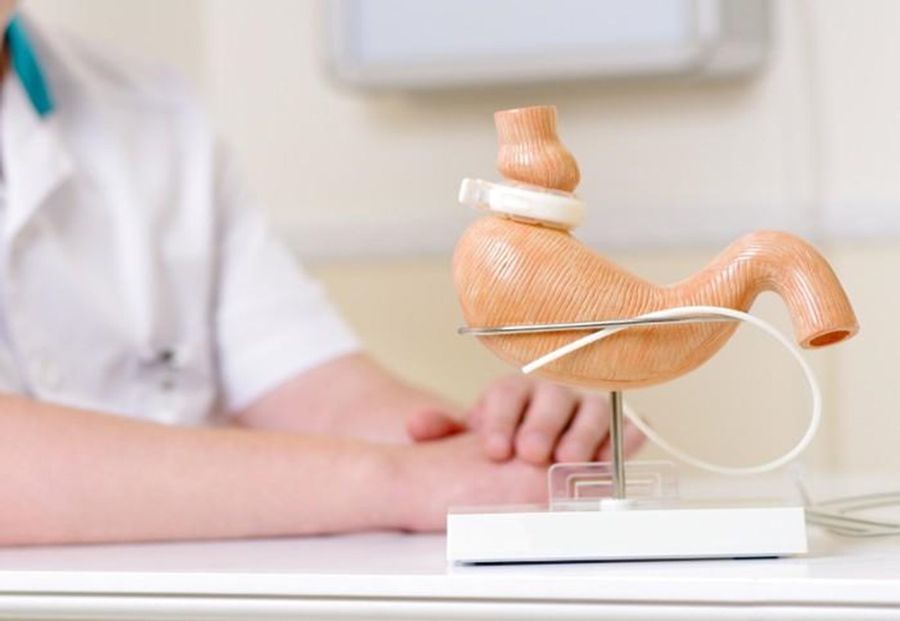7 Medical Specialties That Help Keep You Healthy: From Rheumatology to Bariatrics
When it comes to maintaining good health, it's essential to have access to a wide range of medical specialties. From rheumatology to bariatrics, these specialties provide the expert care and treatment needed to manage various conditions and improve overall health.
Let's take a closer look at seven medical specialties that play a vital role in keeping people healthy: rheumatology, cardiology, audiology, dermatology, nephrology, pain management, and bariatrics.
Rheumatology
Rheumatology specializes in diagnosing and treating rheumatic diseases affecting joints, bones, and muscles. These chronic diseases cause pain, swelling, and stiffness in the joints and other body parts. Some examples of rheumatic diseases include osteoarthritis, rheumatoid arthritis, lupus, and gout.
Rheumatologists are trained to diagnose and treat rheumatic disease using various methods, including medications, physical therapy, and surgery. They may also work with other physicians and healthcare professionals, such as physical and occupational therapists, to develop treatment plans tailored to each patient's needs.
Determining the correct diagnosis is essential in providing quality care, as some rheumatic diseases can be challenging to identify and require specific treatment.
Cardiology
Cardiology specializes in the diagnosis and treatment of conditions and diseases of the heart and blood vessels. According to the World Heart Federation, cardiovascular disease is the leading cause of death globally. It accounts for more than 17.9 million deaths yearly.
Cardiologists are trained to diagnose and treat various heart conditions, including coronary artery disease, pulmonary artery disease, congenital heart disease, heart failure, and arrhythmias. They may also provide preventive care, such as advising patients on lifestyle changes that can help reduce the risk of developing heart problems.
Cardiologists use a variety of diagnostic tests and procedures to evaluate the health of the heart and blood vessels. These may include electrocardiograms (ECGs), echocardiograms, and stress tests. They may also use medications and other therapies to treat heart conditions and sometimes recommend surgery.
Interventional cardiology can be an effective treatment option for many patients with heart conditions, as it allows for faster recovery times and fewer complications than traditional surgery.
Audiology
Audiology specializes in hearing disorders. Audiologists are healthcare professionals who specialize in the diagnosis and treatment of hearing loss and related disorders. They may work in hospitals, clinics, or private practice and see patients of all ages, from newborns to older adults.
Audiologists use a variety of procedures and tests to evaluate hearing and identify hearing loss. These may include hearing tests, such as pure-tone audiometry, and imaging tests, such as magnetic resonance imaging (MRI) or computed tomography (CT) scans. They may also use specialized equipment to evaluate the function of the auditory system, including the ear, auditory nerve, and brain.
Based on the results of these tests, audiologists may recommend hearing aids, cochlear implants, or other assistive devices to help patients with hearing loss. They may also provide counseling and support to patients and their families to help them adjust to living with hearing loss.
Dermatology
Dermatology specializes in the treatment of diseases of the skin, hair, and nails.
Dermatologists are healthcare professionals who specialize in the diagnosis and treatment of conditions affecting these areas of the body. They may see patients of all ages, from newborns to older adults.
Dermatologists use a variety of diagnostic tests and procedures to evaluate the health of the skin, hair, and nails. These may include skin biopsies, cultures, and imaging tests. They may also use specialized equipment to evaluate the skin, such as dermatoscopes or microscopes.
Based on the results of these tests, dermatologists may recommend various treatments, including medications, surgery, or other therapies. They may also provide preventive care, such as advising patients to protect their skin from the sun or other environmental factors that can cause damage.
Nephrology
Nephrology deals with the kidneys and the diseases and conditions that affect them.
Nephrologists are healthcare professionals who specialize in the diagnosis and treatment of kidney diseases, such as chronic kidney disease, acute kidney injury, and kidney infections. They may also see patients with high blood pressure, electrolyte imbalances, and other conditions that can affect the kidneys.
Nephrologists use a variety of diagnostic tests and procedures to evaluate the health of the kidneys, including blood and urine tests, imaging tests, and kidney biopsies. They may also work with other healthcare professionals, such as dietitians, to develop treatment plans tailored to each patient's needs.
Treatment for kidney disease may include medications, dialysis, or kidney transplantation. Nephrologists may also provide preventive care, such as advising patients on lifestyle changes that can help slow or prevent kidney disease.
Pain Management
Pain management is the medical specialty that focuses on the diagnosis and treatment of chronic pain. If pain persists for more than three months it is defined as Chronic pain. It can be caused by various conditions, such as arthritis, cancer, and nerve damage.
Pain management doctors, also known as pain medicine specialists or physicians, are trained to diagnose and treat chronic pain using various methods, including medications, physical therapy, and interventional procedures.
The goal of pain management is to help patients manage their pain and improve their quality of life. Pain management doctors work with patients to develop a comprehensive treatment plan that may include a combination of medications, physical therapy, and other therapies, such as acupuncture or cognitive-behavioral therapy. They may also work with other healthcare professionals, such as physical therapists, to coordinate pain management.
Bariatrics
Bariatrics is the medical specialty that focuses on the management of obesity and related conditions. Obesity is determined as having a body mass index (BMI) of 30 or higher. It is associated with the increased risk of various health problems, including heart disease, diabetes, and high blood pressure.
40% of adults suffer from obesity in the U.S., according to the Centers for Disease Control (CDC).
Bariatric doctors, also known as bariatric surgeons, are trained to treat obesity and related conditions using various methods, including medications, lifestyle changes, and surgery.
Bariatric surgery is designed to help patients lose weight and improve their overall health. There are several different types of bariatric surgeries, including gastric bypass, gastric banding, and sleeve gastrectomy. These procedures work by reducing the size of the stomach, bypassing part of the small intestine, or restricting the amount of food consumed.
Bariatric surgery is usually recommended for patients suffering from obesity, who have not been able to lose weight through other methods. However, it is typically only considered after other weight loss efforts, such as diet and exercise, have been tried and unsuccessful.

In conclusion, rheumatology, cardiology, audiology, dermatology, nephrology, pain management, and bariatrics are all essential medical specialties that play a vital role in the care of patients.
These specialties are staffed by highly trained and board-certified healthcare professionals who have completed years of medical school and either internal medicine or pediatrics specialization. They are dedicated to helping patients manage their conditions and improve their overall health.
Whether it's through medications, therapies, or surgery, these specialists work to provide the best possible care to their patients.
If you need medical care in any of these specialties, don't hesitate to contact Putman County Hospital. Our team of skilled healthcare professionals is here to help you manage your condition and improve your overall health. Click here to schedule an appointment, or call us at 765-301-7300 to speak with one of our friendly staff members.








